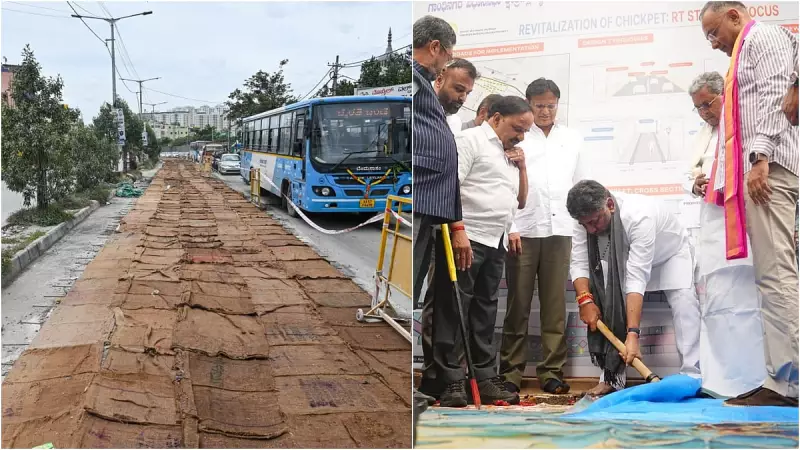
In a major infrastructure push that promises to transform Bengaluru's commuting landscape, the Karnataka government has unveiled an ambitious plan to white-top an additional 500 kilometers of roads across the city. The massive project, valued at a staggering Rs 4,000 crore, aims to address long-standing issues of road quality and maintenance in India's tech capital.
Massive Infrastructure Investment
Deputy Chief Minister DK Shivakumar, who also serves as the Bengaluru Development Minister, made the significant announcement, highlighting the government's commitment to urban infrastructure development. "We are committed to transforming Bengaluru's infrastructure," stated Shivakumar, emphasizing the scale and importance of this initiative for India's fastest-growing metropolis.
Why White-Topping Matters for Bengaluru
The white-topping technology, which involves laying concrete over existing asphalt roads, offers several advantages that are particularly relevant for Bengaluru:
- Enhanced Durability: Concrete roads have a significantly longer lifespan compared to traditional asphalt surfaces
- Reduced Maintenance: White-topped roads require minimal upkeep, saving both time and resources
- Better Ride Quality: Smother surfaces provide improved commuting experience for motorists
- Weather Resistance: Concrete surfaces withstand heavy monsoon conditions better than asphalt
Addressing Urban Mobility Challenges
This infrastructure boost comes at a crucial time when Bengaluru has been grappling with severe traffic congestion and deteriorating road conditions. The extensive network of white-topped roads is expected to:
- Reduce travel time across the city
- Minimize vehicle maintenance costs for commuters
- Improve overall road safety standards
- Enhance the city's aesthetic appeal
Strategic Urban Development
The Rs 4,000 crore investment represents one of the largest single infrastructure initiatives in Bengaluru's recent history. This project aligns with the government's broader vision of creating a world-class urban environment that can support the city's continued growth as India's premier technology hub.
The comprehensive road development plan is expected to be implemented in phases, with priority given to high-traffic corridors and areas experiencing the worst road conditions. As Bengaluru continues to expand both economically and demographically, such infrastructure upgrades become increasingly vital for sustaining urban livability and economic productivity.





